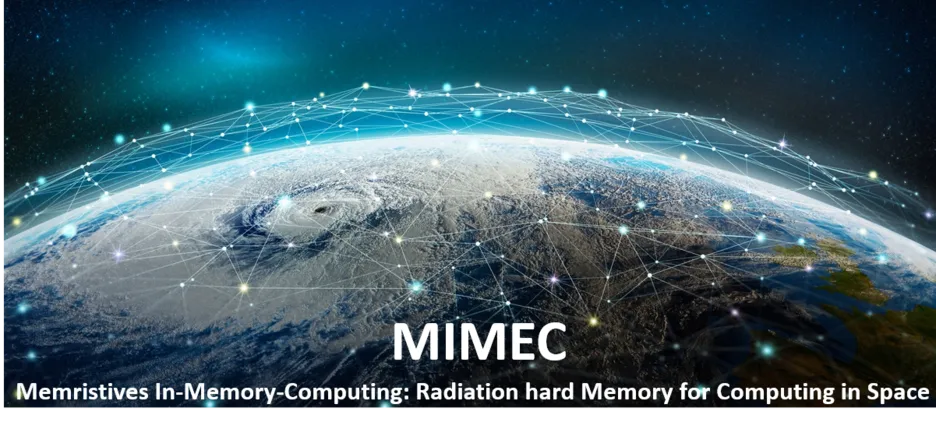Memristive In-Memory-Computing: Radiation hard Memory for Computing in Space
The goal of this project is to conceive, realize, prototype and evaluate a RRAM-based inmemory computing architecture for IoS applications. The IoS Initiative was recently established by IEEE and several companies to deliver high bandwidth information to every part of the world. Their global plan is to deliver thousands of micro-satellites into LEO (low earth orbit) around the globe, to serve internet to rural and developing areas of the world. Consequently, a renaissance in interest and investment in space- and suborbital-based high-data-rate communications networks cuts across multiple hardware-oriented fields, in particular electronics, microwave, photonics, power electronics etc. We are convinced that IoS applications are an upcoming challenge for computational systems due to its needs for redundant calculations and computation intensive error correction methods. By using the inherent radiation hard RRAM cells and combine them with the ability to detect errors by introduce in-memory computation methodology, we propose a concept to address this problem. This means the memory itself will be less susceptible for radiation influence on the one hand side, on the other hand side, if an error exists in the memory content, the in-memory computing ability can detect and correct it with less computational overhead and a low energy consumption.
The MIMEC-Project is a cooperation between the Leibniz Institute for innovative Microelectronics (IHP), the Freidrich-Alexander-University Erlangen-Nürnberg (FAU) and the Chair for Micro- and Nanosystems Technology at the TU Munich. It is part of the DFG priority program "Memristive Devices Toward Smart Technical Systems" (MemrisTec) (SPP 2262).
